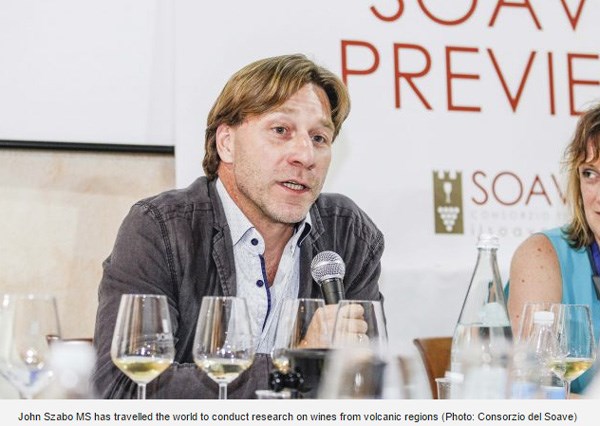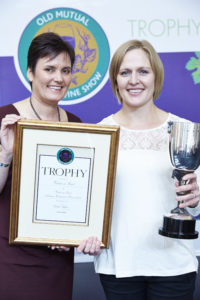19th-century fine wine turns up at Czech castle
The gist of it: Discovered under the floorboards of a Czech castle in a treasure hunt that pitted communist-era police against aristocrats, a veritable treasure trove of 133 bottles of 19th-century wine was found 40 years after being hidden by its then owners. The wines include Chateau d'Yquem vintages from 1892 (valued at up to 750,000 crowns per bottle) and 1896. According to early estimates the whole collection is worth at least 30 million crowns. The original owner, the Beaufort-Spontins, hid the wines under the floorboards of the castle when they fled Austria at the end of WWII after being labelled Nazi sympathisers. Read more here.
Master sommelier John Szabo pushes for 'Volcanic Wine' category
The gist of it: Canadian master sommelier John Szabo has spent years researching wines from volcanic soils and announced at the recent International Volcanic Wine Forum in Italy that he believes there is enough sensory data to justify a volcanic wine category, despite a lack of sufficient scientific data to support his claim. Vines grown in volcanic soil tend to produce wines that boast bouquets with intensely flinty mineral cores and surprisingly floral top notes, depending on varietal. Other frequently noted flavour elements include pepper, herbs, and concentrated dark fruit. Read more here.
Bonus factoid: Highly volcanic areas have some of the most fertile farmland in the world. Volcanic eruptions bring nutrients such as potassium and phosphorus to the Earth’s soil. The weathering of volcanic rocks also releases nutrients.
Archaeological dig confirms Georgia as the cradle of winemaking
The gist of it: The Georgian National Museum (GNM) announced this week that grape seeds and vine dust dating back to 6000 BC had been discovered at the Gadachrili Gora archaeological site in south-eastern Georgia's Kvemo Kartli region. Digs at the Gadachrili Gora site have been giving up ancient winemaking artefacts since 2014, when the international project was initiated by the GNM, the Georgian Wine Association and the National Wine Agency of Georgia. Some of the materials uncovered included grape skins and pips inside old qvevri (clay) vessels, as well as vessels that contained dusty remains of cultivated vines that date back to the 6th millennium BC. These findings have strengthened the country's claim of being the original cradle of the art of winemaking. Read more here.
Vrede en Lust charters a new course for Cabernet Franc in South Africa
The gist of it: 2016 Juliet Cullinan Standard Bank Wine Festival exhibitor Vrede en Lust recently received a coveted Old Mutual Trophy for its 2014 Artisan Cabernet Franc. The winery was also crowned as one of the top 10 most successful producers. Trophy status is the show’s highest honour and reserved for only a select few of top performing wines that are subjected to a second round of judging after Gold medals have been awarded. Making this award even more special, is the fact that it is the first time in the 15-year history of the competition that a trophy has been awarded for Cabernet Franc. The varietal is still relatively unheralded in South Africa, but Vrede en Lust Estate has become known for cultivating lesser-known wine gems and unlocking their full potential through its popular Artisan Range. Read more here.
This week’s Weekly Wine Wrap-Up was brought to you by Juliet Cullinan Wines. The 26th annual Juliet Cullinan Standard Bank Wine Festival will be hosted on 12 and 13 July 2016 at Summer Place, Hyde Park. Tickets are available at Webtickets.
Webtickets | Email | Twitter | Facebook | Instagram








































